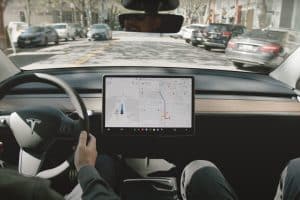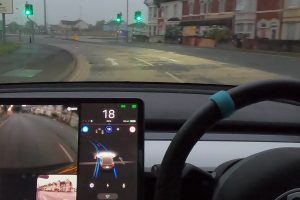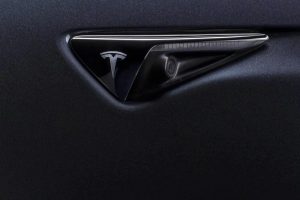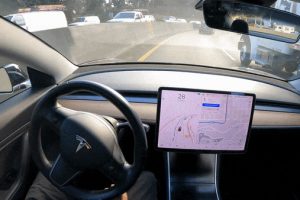- 🇨🇳 Tesla reportedly received support from the Chinese government to test its robotaxi concept with Full Self-Driving (FSD) in China.
- 🚗 Elon Musk proposed deploying Tesla vehicles as taxis and rolling out the FSD software to Chinese taxi services.
- 🤖 The robotaxi fleet will be operated by Tesla, with some cars owned by Tesla and others owned by end users.
- 🔍 The FSD tests in China would confirm Musk’s statement that FSD should work anywhere globally with country-specific training.
- 🤝 China has continued to welcome global companies to test their technologies for mutual gain, according to industry experts.
In a move that could potentially reshape the landscape of urban transportation, Tesla has reportedly secured support from the Chinese government to test its groundbreaking Full Self-Driving (FSD) technology in the country. This development comes as Elon Musk, the visionary CEO of Tesla, proposed an ambitious plan to deploy the company’s vehicles as robotaxis and roll out the FSD software to Chinese taxi services.
The Robotaxi Concept: Revolutionizing Urban Mobility
At the heart of this initiative lies Tesla’s robotaxi concept, a revolutionary idea that combines the convenience of ride-hailing services with the cutting-edge capabilities of autonomous driving technology. Musk envisions a fleet of Tesla vehicles operating as self-driving taxis, revolutionizing the way we navigate cities and urban landscapes.
The robotaxi fleet will be operated by Tesla, with some vehicles owned by the company itself, while others will be owned by individual end users. This innovative ownership model allows Tesla owners to contribute their vehicles to the robotaxi service, earning income when their cars are not in personal use. Additionally, owners will have the flexibility to set limits on the number of customers who can utilize their vehicles as robotaxis, ensuring a customized experience.
FSD in China: A Testament to Global Scalability
Elon Musk’s proposal to test FSD in China holds significant implications for the technology’s global scalability. During Tesla’s Q1 2024 earnings call, Musk expressed confidence that with country-specific training, FSD should work seamlessly in any market worldwide. The opportunity to test FSD in China’s diverse and dynamic urban environments will serve as a true litmus test for this assertion.
Musk likened FSD to a human’s ability to drive competently in foreign countries, emphasizing that while local experience enhances performance, the underlying technology should function reasonably well across borders. This analogy underscores Tesla’s commitment to developing a truly versatile and adaptable autonomous driving system capable of navigating the unique challenges of different regions.
A Collaborative Approach: Embracing Mutual Benefits
China’s reported willingness to support Tesla’s robotaxi tests aligns with the country’s ongoing efforts to foster innovation and technological advancement. Industry experts have noted that China has consistently welcomed global companies to test their cutting-edge technologies, recognizing the mutual benefits of such collaborations.
By allowing Tesla to test FSD in real-world scenarios, China stands to gain valuable insights into the development and deployment of autonomous driving systems. This knowledge could inform future regulations, infrastructure planning, and policies aimed at embracing the rapidly evolving mobility landscape.
The Road Ahead: Overcoming Challenges and Seizing Opportunities
While the prospect of Tesla’s robotaxi service operating in China is undoubtedly exciting, it is not without its challenges. Concerns surrounding data privacy, cybersecurity, and the ethical implications of autonomous decision-making will need to be addressed thoroughly. Additionally, the integration of FSD-equipped robotaxis into existing transportation networks and urban planning initiatives will require careful coordination and collaboration between Tesla, regulatory bodies, and local authorities.
Despite these hurdles, the potential benefits of a successful robotaxi deployment in China are immense. From reducing traffic congestion and emissions to improving accessibility and mobility for underserved communities, the impact of this technology could be transformative.
As Tesla and the Chinese government embark on this pioneering partnership, the world watches with bated breath, eager to witness the realization of a future where autonomous vehicles seamlessly navigate our cities, redefining the very concept of urban transportation. The road ahead may be challenging, but the promise of a safer, more efficient, and sustainable mobility ecosystem beckons, propelling us towards a tomorrow where robotaxis are the norm, and the boundaries of innovation are pushed ever further.





